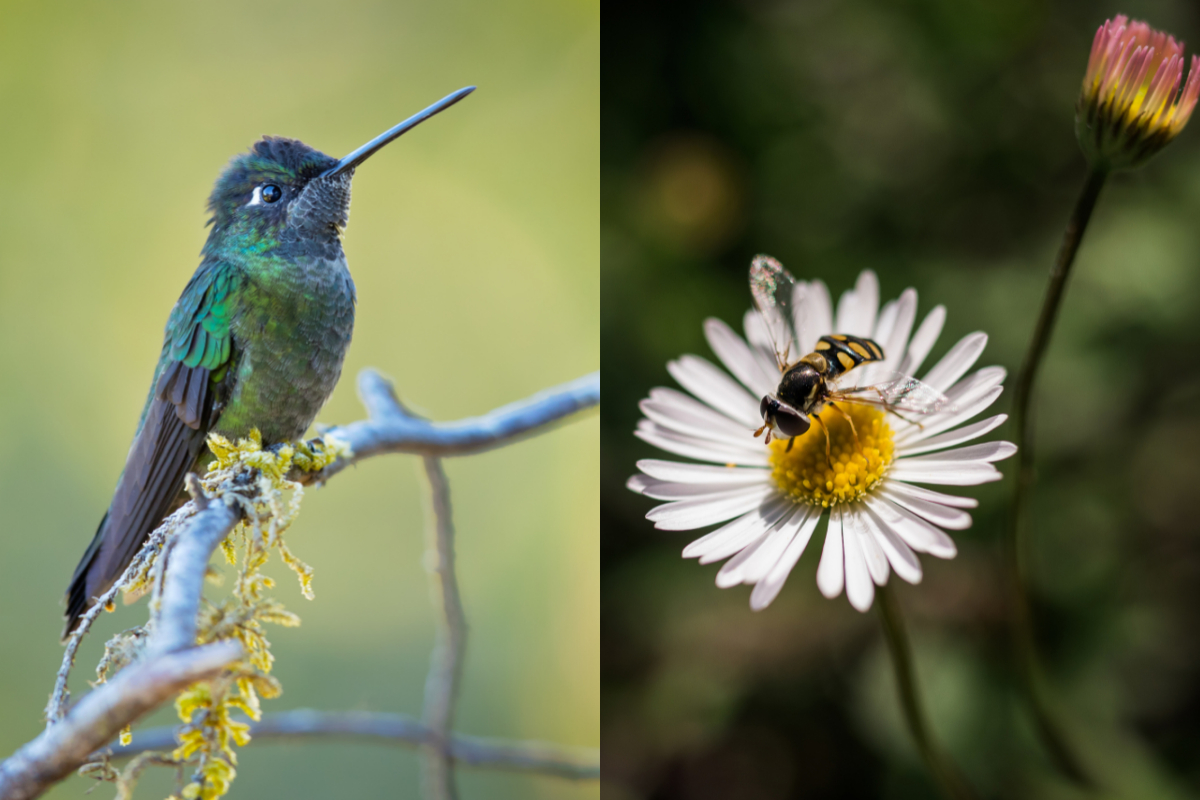Watching hummingbirds fluttering around feeders can be a captivating sight. However, the presence of unwanted guests like wasps can quickly diminish the enjoyment. This raises the question: do hummingbirds eat wasps? While it may seem logical that they would consume them for their protein content, research has shown that hummingbirds do not eat wasps.
In this blog post, we will explore the dietary relationship between hummingbirds and wasps and delve into what hummingbirds actually eat instead of wasps. By the end of this article, you will have a better understanding of whether hummingbirds truly eat wasps or not. So, grab your favorite drink and let’s dive into the fascinating world of hummingbirds and wasps!
Key Takeaways on Hummingbirds Eating Wasps
- Hummingbirds primarily feed on nectar and do not consume wasps. However, they often encounter wasps as competitors for the same nectar sources in their shared habitats.
- The relationship between hummingbirds and wasps is complex, especially when it comes to their feeding patterns around shared nectar resources.
- Hummingbirds choose to avoid wasps due to the potential risks they pose, such as stings. Instead, they opt for safer and more easily digestible insects for their nutritional needs.
Do Hummingbirds Eat Wasps?
Contrary to popular belief, hummingbirds do not eat wasps. While they derive energy from flower nectar, their protein source comes from small insects, not wasps. Wasps are not a part of a hummingbird’s diet. Hummingbirds prefer softer and safer insects that are more easily digestible.
The potential risks associated with predatory insects like wasps, such as stings and tough exoskeletons, make them unsuitable for hummingbirds. Hummingbirds choose to feed on little soft bugs like gnats from flowers, more bugs when they need extra energy or for their babies, tree sap for sugar before flowers open, and sometimes fruit for extra carbs. These preferred foods provide the necessary nutrients for hummingbirds while avoiding the risks associated with consuming well-defended insects like wasps.
Why Do People Think Hummingbirds Eat Wasps?
There are several reasons why people mistakenly believe that hummingbirds eat wasps:
- Wasps share habitats with hummingbirds, leading to the assumption that predation is likely.
- Large hummingbird species, such as the Rufous, exhibit predatory behavior towards other insect prey.
- Misinterpretation of hummingbirds near nests as raiding rather than unrelated activity.
- Lack of awareness that hummingbirds prefer easily digestible insects, excluding wasps.
However, extensive research has shown that there is no concrete evidence to support the idea that hummingbirds consume wasps.
What Do Hummingbirds Really Eat?
To understand why hummingbirds don’t eat wasps, it’s important to know what they do eat:
- Hummingbirds feed on little soft bugs like gnats from flowers.
- They consume more insects when they need extra energy or when feeding their babies.
- Hummingbirds also feed on tree sap for sugar before flowers open and sometimes eat fruit for extra carbs.
- They choose safe foods that are easy to obtain and provide the necessary nutrients. Wasps do not fit this criteria.
These preferred foods allow hummingbirds to avoid the risks associated with trying to eat well-defended insects like wasps. However, hummingbirds and wasps still interact when it comes to their quest for food, especially around shared nectar resources. Their dietary relationship is complex and can impact the feeding success of both species.
Why Don’t Hummingbirds Eat Wasps?
There are several reasons why wasps are not a suitable food source for hummingbirds:
- Adult wasps can sting hummingbirds, causing pain and potential damage to their bodies.
- The hard shells and stingers of wasps are difficult to swallow.
- The poison in wasps can make hummingbirds sick.
- Wasps are fast-moving, making them challenging to catch.
- Flowers provide an abundance of safer small bugs for hummingbirds to eat.
Overall, wasps pose too many dangers for hummingbirds when there are better food sources available. The risks associated with consuming wasps likely deter hummingbirds from targeting them.
Final Thought
While hummingbirds do not eat wasps, they often share the same feeding areas, such as flower gardens and feeders. Although wasps can be intimidating, hummingbirds are fast and intelligent, allowing them to navigate safely around them. It’s fascinating how different creatures find ways to coexist in the same space.
